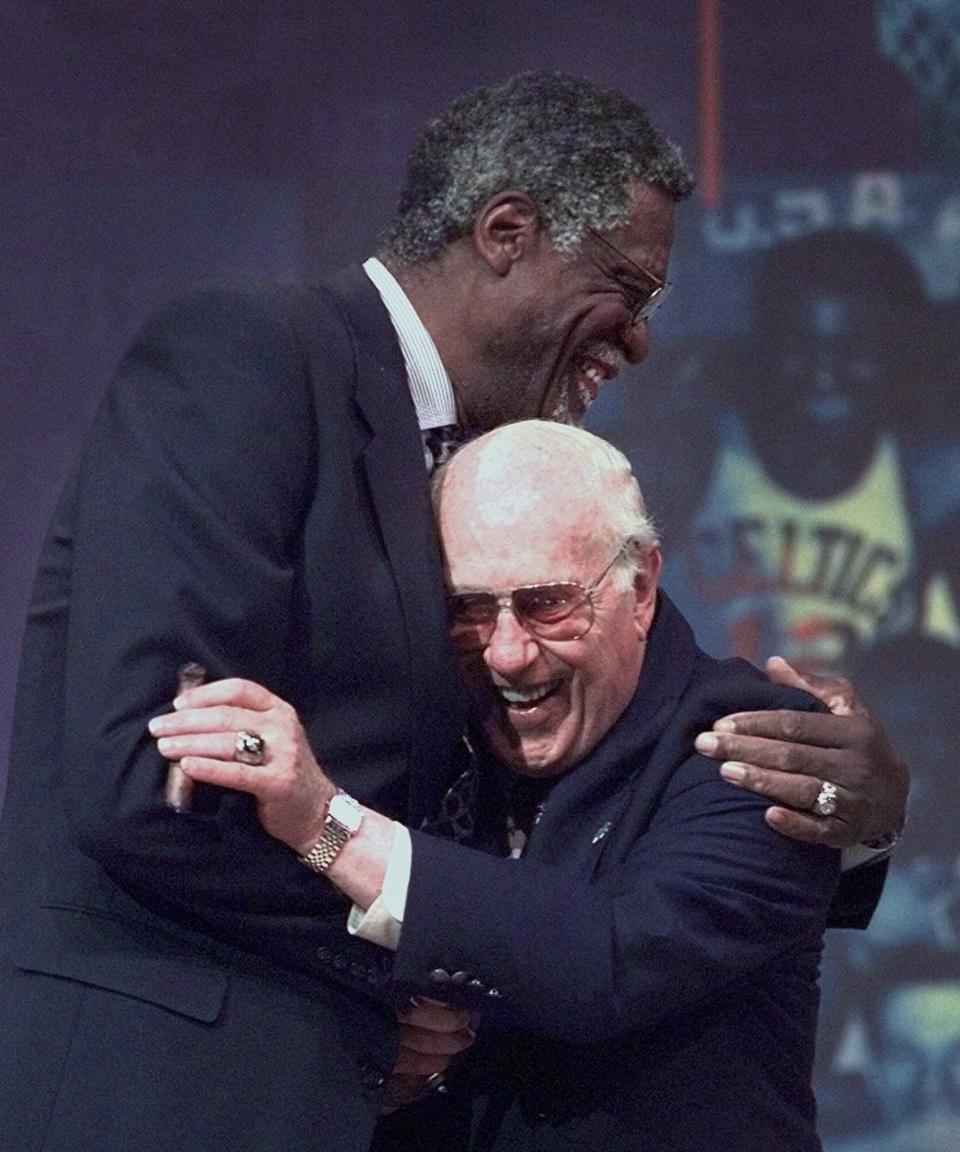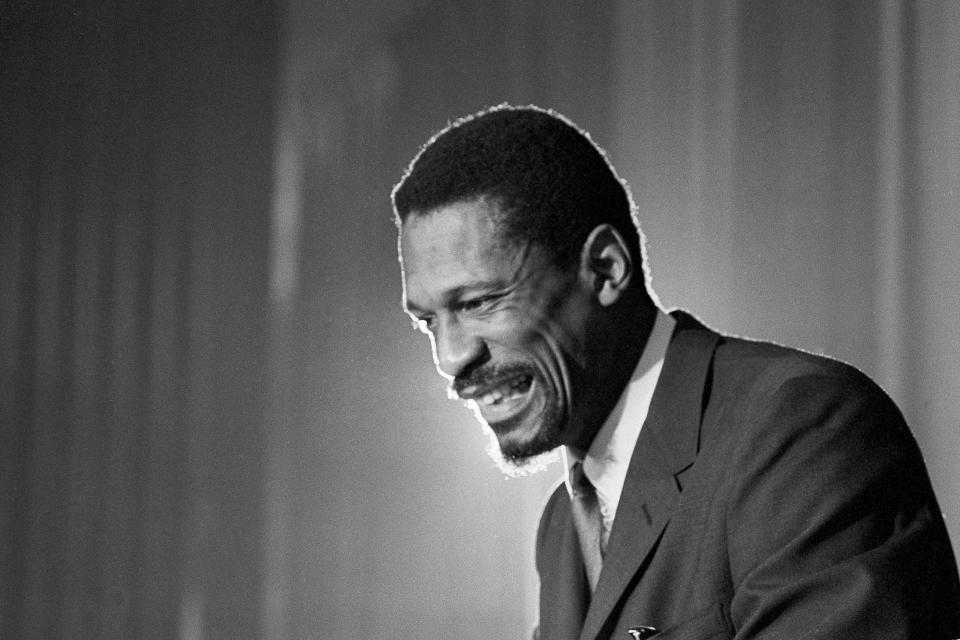Bill Russell did not want to coach the Celtics ... then he did and made NBA history | Opinion
In February for Black History Month, USA TODAY Sports is publishing the series “28 Black Stories in 28 Days.” We examine the issues, challenges and opportunities Black athletes and sports officials continue to face after the nation’s reckoning on race following the murder of George Floyd in 2020. This is the third installment of the series.
Bill Russell did not want to coach the Boston Celtics.
Not initially anyway.
Red Auerbach had stepped down after winning the title in 1966. It was the Celtics’ eighth consecutive title and ninth in 10 seasons.
"What better way to motivate Bill Russell the player than Bill Russell the coach," Auerbach said.
Auerbach next asked Russell. "I told him I didn’t want the job," Russell said.

The next person Russell and Auerbach wanted to coach, Frank Ramsey, didn’t want the job, either, and when Auerbach failed to find a coach both he and Russell agreed on, Russell said he would serve as player-coach, starting with the 1966-67 season.
"I thought if I tried to coach, I would re-energize my relationship with the game," Russell said.
In his introductory news conference, Russell had to endure the racial animus of the era. A reporter asked Russell if he could coach white players without prejudice, an absurd inquiry considering Russell had close relationships with Bob Cousy, Tom Heinsohn and Ramsey.
Years later, Russell turned the question around: No one was asking white coaches if they could coach Black players without prejudice.
Russell the coach espoused the same basketball philosophy as Russell the player: Defend, play fast offensively, and play team basketball.
The NBA’s first Black coach, Russell was also the first Black coach to win an NBA championship. He won two titles as player-coach for the Celtics and was inducted into the Basketball Hall of Fame as a coach in 2021, 46 years after entering the Hall as a player.
Russell died July 31 at 88 years old and the deserving tributes followed. For obvious reasons, much of the focus was on Russell’s playing days and his steadfast push for racial and social equality. This season, every NBA player wears a No. 6 patch on their jersey in honor of Russell.
More: Top NBA storylines headed into final games of regular season
More: Charles Barkley is thought-provoking but wrong about impending NBA lockout | Opinion
It would’ve been a nice touch if coaches had worn a Russell pin on their shirt or pullover this season.
In his first season as coach and player, the Celtics lost to Philadelphia and Russell rival and friend Wilt Chamberlain. Russell took the brunt of the criticism. Fans booed Boston.
"Bill Russell watches a dynasty crumble around him," an announcer said.
A headline read: "Wilt advises Russell to quit coach’s job."
Russell wasn’t leaving the game that way, not the man whose basketball career is defined by winning. Imagine a player-coach in today’s game. It’s laughable to think anyone could pull it off.

"You didn't have assistant coaches and didn't have lots of trainers," Sam Pollard, the director of the new Netflix documentary Bill Russell: Legend told USA TODAY Sports. "Today's coaches, they're surrounded with so many people to support them, and he had to do it all himself and also be a player. So that's pretty tremendous and amazing.
"And to be the first (Black NBA coach), to be the coach of a major franchise, it had to be a tremendous amount on his shoulders for him to say, 'Boy, now I’ve got to lead the Celtics to another championship after all the championships that the Celtics have won under the coaching of the great Red Auerbach.' And he didn't win that first season that he was a coach. So he knew he had something to prove."
By time the 1968-69 season ended, Russell was done playing and coaching with Celtics. His influence on Black coaches extended from one decade to the next. Al Attles won a title with Golden State in 1975; Lenny Wilkens helped Seattle to a championship in 1979; Russell’s teammate, K.C. Jones, won two titles with Boston in the 1980s; Doc Rivers won a title with Boston in 2008; Ty Lue coached the Cavs to a championship in 2016; and this season, the NBA had a record 16 Black head coaches.
More: Who are the favorites in the NBA's Eastern and Western Conferences?
Rivers used to have lunch with Auerbach and Russell in Boston. "I have often said I wish he even had a more impact with players on the importance of being a team player and being a winner," Rivers said. "Because that's all he stood for through his life. When you think about it, he's won everywhere. College, Olympics, NBA, everywhere he touched, he won. He was a winner, and he was also the first in a lot of things, which makes him the winner."
Russell isn’t far from first-year Celtics coach Joe Mazzulla’s mind on a regular basis.
"I think a lot about him because when I walk out there, I see his banner and the legacy he left, and I have a responsibility to that legacy by trying to leave it in a better place," Mazzulla said.
This article originally appeared on USA TODAY: Bill Russell did not want to coach the Celtics, then he made history

